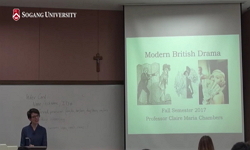This essay attempts to place Karl Marx anew in this era in which postmodernism flourishes. Postmodernism has raised fundamental questions in the existing knowledge system. There have been critiques of the objective comprehension of history, evoking ne...
http://chineseinput.net/에서 pinyin(병음)방식으로 중국어를 변환할 수 있습니다.
변환된 중국어를 복사하여 사용하시면 됩니다.
- 中文 을 입력하시려면 zhongwen을 입력하시고 space를누르시면됩니다.
- 北京 을 입력하시려면 beijing을 입력하시고 space를 누르시면 됩니다.
칼 맑스와 포스트모더니즘 결과보고서
한글로보기https://www.riss.kr/link?id=G3605102
- 저자
-
발행기관
-
-
발행연도
2004년
-
작성언어
Korean
- 주제어
-
자료형태
한국연구재단(NRF)
-
0
상세조회 -
0
다운로드
부가정보
다국어 초록 (Multilingual Abstract)
This essay attempts to place Karl Marx anew in this era in which postmodernism flourishes. Postmodernism has raised fundamental questions in the existing knowledge system. There have been critiques of the objective comprehension of history, evoking new understanding of the characteristics of oppression and human liberation. Instead of grand narrative based on totality, postmodernism suggests the horizontal and dialogical channels, which include interactions of diverse relations. That is, according to proponents of postmodernism, historical science is not concerned with capitalized 'History' as a meta-narrative, but with small 'histories', which comprise the minor narratives of numerous individuals.
In this context, it is no wonder that Marxism has encountered political and epistemological challenges with the advent of postmodernism. This is because Marxist historical science pursues a total history and puts the economical structure and class relations central to history understanding.
But this issue is not so simple. My point is that Marx, with Nietzsche who has influenced the postmodernists greatly, raised fundamental questions on Modernity. Marx was the first to try to deconstruct the modernist concepts of reason, consciousness, and subject, in his own ways, going against the Hegelian universalist system of philosophy.
In the first part of this essay, I would explore the similarities between Marx and Nietzsche in the light of 'the ontology of relations'. I will employ the theory of L. Althusser for this purpose.
The second part is devoted to the explanation of Marx's characteristic points on alienation, human nature, and truth on which he put his faith. My point is that in spite of the similarities, Marx did not take the step, as Nietzsche did, of reducing reason and truth simply to the expression of interests, or one form of the will to power. I use Heidegger's ontology on this point.
I explain, in the third part, that Marx had never thrown away the notion of totality, while he denied the universalist philosophy as a grand narrative.
Moreover, I argue that we need to recover the alternative grand narrative that helps us understand the meaning of the individual in order not to be overwhelmed by ‘narcissism of small differences’. It is still valid and important to analyze the intersections of contradictions under the frame of totality. More importantly, the world that we live in now requires universalistic projects more than ever before, not only from the epistemological level, but from the political dimension, since, whether we want or not, we are under the system of capitalism which is managed by the totalized and grand mechanism. In this sense, there still remains a political and epistemological base and its possibilities that pursue 'a History', which is concerned with a valid context, overcoming the notions of ‘History’ and ‘histories’.











